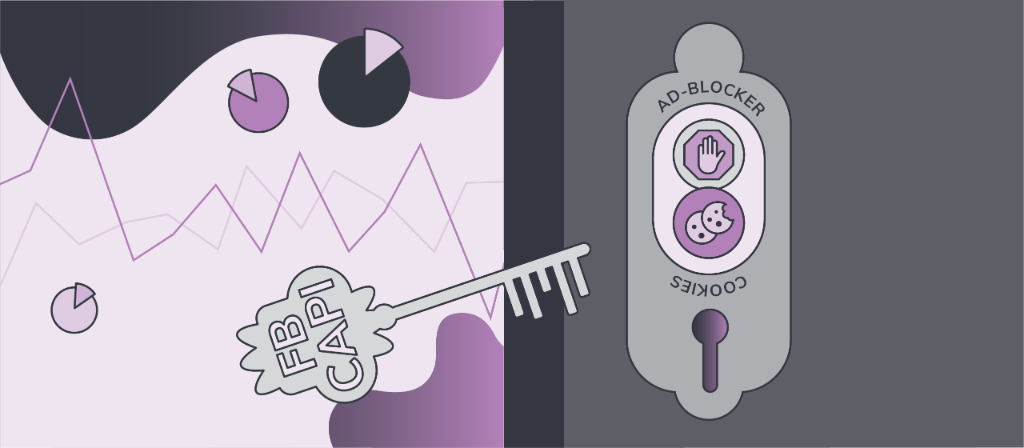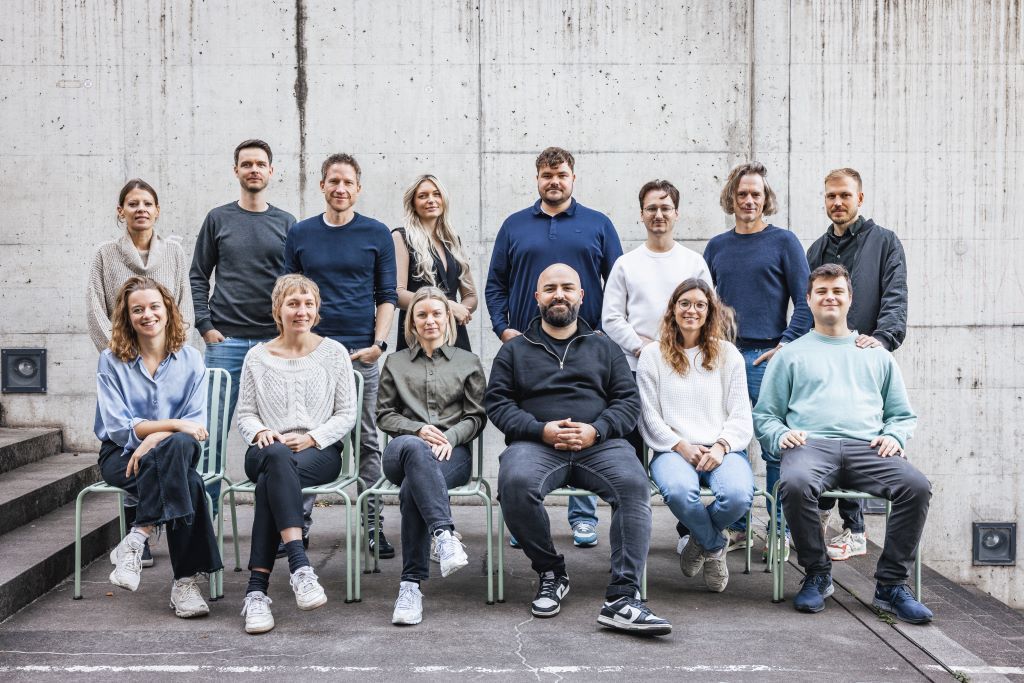In a world where privacy regulations and technical restrictions are increasingly challenging online marketing, precise tracking is more crucial than ever. High-quality data is essential for successful Facebook campaigns - but traditional browser tracking has its limits due to cookie restrictions, ad blockers and strict data protection guidelines such as the GDPR.
The solution? Facebook Conversion API (CAPI). This server-side tracking method makes it possible to minimise data loss and significantly increase the quality of analyses and campaigns. In our blog post, we explain how server side tracking works with the Facebook Conversion API, what advantages it offers and what options are available for data protection-compliant implementation.
The challenge: Data loss due to browser tracking
The problem: Incomplete and inaccurate tracking data and analyses
Anyone running Facebook adverts wants to see exact results - from conversions to target group insights. But the reality is often different: Adblockers, browser updates and data protection restrictions lead to a significant loss of data.
One example:
Your pixel tracking only records 20 conversions, even though 50 actually took place.
The consequences:
- The cost-per-conversion calculation is inaccurate
- Target group analyses are incomplete
- The advertising budget is used inefficiently
Without precise data, the optimisation of campaigns is made more difficult, the costs per conversion increase and the return on investment (ROI) remains unclear. This leads to a competitive disadvantage, as decisions have to be made based on incomplete data.
You can find out more about the challenges and opportunities of server side tracking in our blog article.
The solution: Facebook Conversion API
The Facebook Conversion API (CAPI) supplements or replaces classic pixel tracking with server-side recording of interactions. Instead of relying exclusively on browser data, the tracking information is sent directly from the server to Facebook.
This ensures more robust data quality, regardless of browser or cookie restrictions.
Use of first-party data instead of cookies
A particular strength of the Facebook Conversion API (CAPI) is the ability to send first-party data directly to Facebook. While conventional tracking often relies on cookies - which are increasingly being blocked by browser restrictions and data protection regulations - CAPI enables direct and reliable data transmission via the server.
As the data is no longer collected exclusively via the browser, but comes directly from the company's own systems, tracking remains less susceptible to cookie blockades and adblockers. This leads to higher data quality and better measurability of conversions, even in an increasingly privacy-regulated environment.
Hybrid tracking for maximum measurement accuracy
The best conversion measurement is achieved when the Facebook Conversion API is used in hybrid mode - i.e. by combining client-side and server-side tracking. The events are sent to Facebook both via the browser (Facebook Pixel) and directly via the server.
Facebook uses the event ID to deduplicate the data so that the same events are not recorded twice. This unique identifier ensures that Facebook recognises when an event has been recorded both on the client and server side and only processes it once.
The advantages of the Facebook Conversion API at a glance:
- Reliable tracking despite browser restrictions
Tracking data is no longer blocked by adblockers or cookies as it is processed directly on the server side - Higher data quality through hybrid tracking
The combination of Facebook pixel and CAPI data creates a more complete picture of the target groups and their interactions. - Data protection-compliant implementation
With server-side tracking, you retain full control over the data collected and can ensure that your solution complies with the applicable data protection regulations. zweipunkt supports you with GDPR-compliant integration. - Optimised campaign performance
More accurate data improves the targeting of your Facebook ads, reduces advertising costs and increases the conversion rate.
By combining client-side and server-side tracking, you maximise the data quality and accuracy of your Facebook ads and ensure better performance of your marketing campaigns.
Facebook Conversion API implementation
There are various ways to integrate the Conversion API into existing systems. The choice of the right method depends on the technical possibilities and resources.
1. Direct server integration via the Facebook API
The API is integrated directly into the server infrastructure and enables maximum control over data transfer.
Who is it suitable for? Companies with experienced developers and an existing server infrastructure.
Advantages: Maximum flexibility and control over data transfer.
Disadvantages: High development effort and technical expertise required.
2. Integration with Tealium EventStream
The server-side setup via Tealium EventStream offers an easier way to use the Conversion API.
Who it's for: Companies that already use Tealium EventStream
Benefits: No direct API development required, flexible customisation possible, use of predefined connectors
Disadvantages: Licence costs for Tealium can be high and requires basic knowledge of Tealium and event tracking for optimal implementation.
3. Integration with Google Tag Manager (GTM)
Server-side setup via Google Tag Manager offers an easier way to utilise the Conversion API.
For whom suitable: Companies that already use GTM
Advantages: No direct API development required, flexible customisation possible
Disadvantages: Setting up a server container can be challenging for beginners.
4. Partner integrations from Facebook
Facebook works with platforms such as Shopify, WooCommerce or Magento to facilitate API integration.
Suitable for whom: Small to medium-sized businesses that use such platforms.
Advantages: Easy integration without in-depth technical knowledge.
Disadvantages: Limited flexibility for customisation.
5. Facebook Conversion API Gateway
The Facebook Conversion API Gateway is a server-side solution specially developed by Facebook to make it easier to set up the Conversion API. It is operated via a cloud platform such as AWS (Amazon Web Services) or stape.io and acts as a bridge between the website or app and Facebook's Conversion API.
Who is it suitable for? Companies without their own server infrastructure.
Advantages: Quick setup, GDPR-compliant and scalable.
Disadvantages: Basic knowledge of cloud services required (not mandatory with Stape!); additional cloud costs.
How zweipunkt can support the use of Facebook API
Implementing the Facebook Conversion API is complex - especially if several systems are in use. zweipunkt offers holistic support to ensure an efficient and data protection-compliant solution:
- Infrastructure analysis: Review of existing tracking systems and optimisation for server-side tracking
- Technical integration: Setting up the API and synchronisation with Facebook account
- Data protection-compliant integration: Our experts ensure that all legal requirements are met
- Long-term support: After setup, we continue to provide support for the continuous optimisation of tracking data
Conclusion: Precise tracking for better campaign results
The Facebook Conversion API is a future-proof solution for avoiding data loss and increasing the efficiency of campaigns. Server-side tracking offers more precision, control and performance, especially in view of growing data protection requirements.
zweipunkt develops a customised and GDPR-compliant tracking solution that can be seamlessly integrated into existing systems - for more precise data, optimised advertising campaigns and long-term success in online marketing.
Let us advise you now - together we will find the perfect solution for your tracking challenges.

